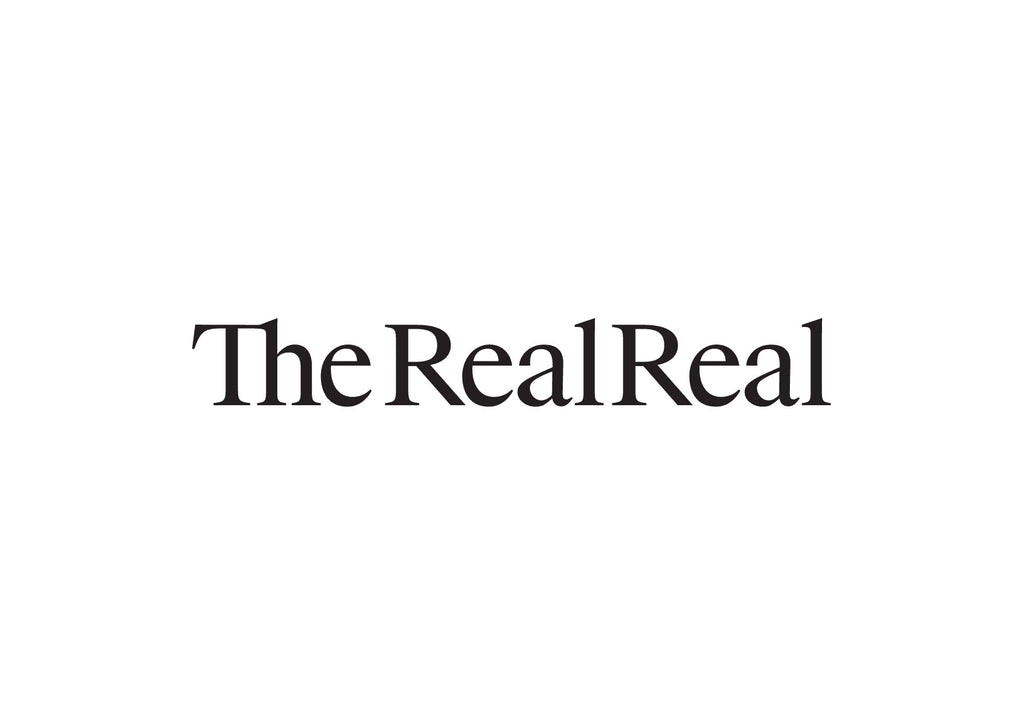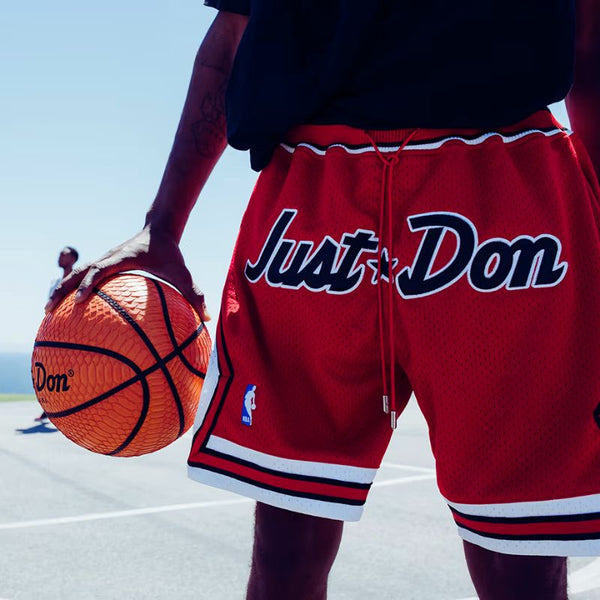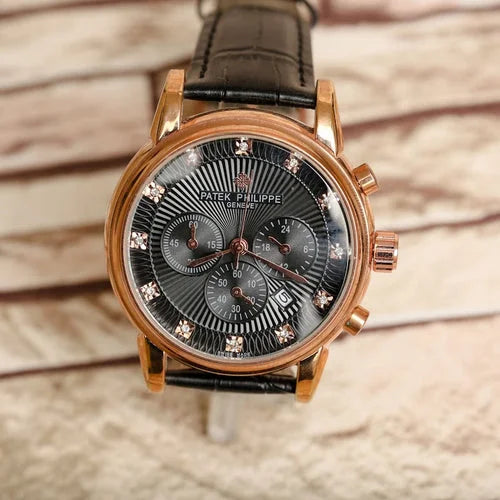15 Best Places to Sell Designer Clothes Online
In the fashion world, trends may come and go, but the allure of designer clothing never fades.
If your closet is stuffed with designer clothes you no longer wear, selling them online is a great way to clear up space while earning extra cash.
However, choosing the right platform is the key to a successful sale. Here are the 15 best places to sell designer clothes online.
Table of Contents
[ open ]Poshmark

Poshmark is a social commerce platform that provides an easy and fun way for users to buy and sell fashion items, including designer clothing.
The process is quite straightforward: you take photos of your clothes, create a listing with a description and price, and post it on the platform.
One significant advantage of Poshmark is its user-friendly interface, which combines the feel of a small social network with an e-commerce platform. You can follow other closets, join virtual shopping parties, and share listings to increase item visibility.
Communication between buyer and seller is encouraged, creating a community vibe and making transactions more personal.
However, it’s important to note that Poshmark charges a fee for each sale, which is a small price to pay for the platform's broad audience reach. They also offer a prepaid, pre-addressed label, simplifying the shipping process.
The RealReal

If you want to sell designer clothes, The RealReal is the platform tailored for you. It operates on a consignment model, meaning they sell your items for you.
You send your items to them, their experts authenticate your clothes and price them, and then your pieces are listed on the site.
What sets The RealReal apart is its promise of authenticity, which is crucial for buyers wary of counterfeit goods. The professional curation and valuation ensure that buyers trust the products they purchase, which could mean quicker sales for higher prices.
Remember, though, The RealReal takes a significant commission from the sale, but you get a hassle-free process in return. They handle the photography, listing, and shipping, helping your luxury items find new homes with no effort on your part.
Vestiaire Collective

Vestiaire Collective stands out with its dedication to high-quality and designer pieces. This Paris-based online resale platform allows users to sell clothes online to an international community of fashion enthusiasts.
Selling on Vestiaire Collective involves submitting a listing for the item you want to sell. After you do this, their team will review and edit your listing before putting it live on the site to ensure it meets their standards. They'll suggest a price, but you have the final say.
A unique feature is their quality control process. Once a sale is made, you ship the item to Vestiaire Collective, where their experts authenticate it before forwarding it to the buyer, reinforcing trust in your product's authenticity and quality.
While the platform does take a commission, the attentive service, the vast audience of dedicated fashionistas, and the assurance of security make it a prime choice for selling designer clothing.
Tradesy

Tradesy offers a user-friendly approach to selling designer fashion, attracting many buyers and sellers. The process is simplified for the seller's convenience: you take photos, set a price, and then, upon sale, ship your items directly to the buyer.
What makes Tradesy special is its support throughout the selling process. They offer pricing assistance to help you set a competitive price, and their shipping kit service eases the post-sale process. Also, they have a robust system for handling returns on your behalf, which minimizes hassle.
Tradesy does charge a commission, but the rate is competitive, considering the services provided. Its clean, user-friendly interface, comprehensive support, and buyer-seller protection services make it a strong contender for selling designer clothes.
ThredUp

ThredUp operates differently, functioning like an online thrift and consignment store. This platform is perfect for those who want to sell but prefer not to handle every detail of the selling process.
With ThredUp, you order a Clean Out Kit, fill it with the clothing you wish to sell, and return it to them. They then sort the clothes, photograph, list, and store them until they are sold. You won't make money as quickly as direct listing sites, but it's a nearly effort-free process.
While you might receive a lower payout than selling the items yourself, ThredUp is perfect for those looking for convenience and happy to trade potential earnings for ease.
Farfetch

While primarily known as a marketplace for buying new luxury items, Farfetch has ventured into the resale space with its Second Life program, allowing users to sell their designer handbags.
You submit details and photographs of your bag, and within two business days, you receive a buyback price. If you accept, you ship the item to Farfetch for free. In exchange, you receive a credit to spend on future Farfetch purchases.
Though currently limited to handbags, Farfetch's seamless process and unique credit compensation system make it an attractive option for those continually eyeing their next luxury purchase.
Rebag

Rebag is specifically tailored for selling luxury handbags. You simply submit photos and details of your bag, and Rebag provides a free quote within one to two business days. If you agree, you ship the bag to them for free or drop it off at one of their physical locations.
Rebag stands out with its upfront payment. Unlike consignment, where you wait for your item to sell, Rebag purchases the bag directly. While this might mean a lower payout than personal selling, it guarantees immediate payment.
For those with luxury bags gathering dust, Rebag offers a fast, secure, and straightforward way to free up closet space and earn money to fund future fashion treasures.
Selling your pre-loved designer clothes and accessories has never been easier with these platforms. By choosing the site that aligns with your needs, you can ensure a smooth, rewarding selling experience.
Whether you prefer to be hands-on or desire a service that handles the details, there's a platform for you among these top picks.
Fashionphile

Fashionphile specializes in high-end designer handbags, accessories, watches, and jewelry. The platform distinguishes itself with a commitment to the authenticity and quality of items. Every piece listed on Fashionphile undergoes a thorough verification process by a team of luxury experts, ensuring buyers receive genuine articles.
For sellers, Fashionphile offers a straightforward process. You can get a quote for your item online and then choose to ship it or drop it off at one of their physical locations.
Once authenticated, your item is listed and paid for after it sells. A key advantage here is the platform's buyback program, which promises to repurchase items at a predetermined price, ensuring you know what you stand to recoup from the outset.
eBay

eBay, one of the pioneers of online retailing, offers an immense marketplace for various items, including clothes. It's perfect for sellers who prefer setting up their listings, controlling their pricing strategy through auction or fixed-price listings, and handling communication with buyers.
eBay has policies and a money-back guarantee for buyer protection that helps when items don't match their descriptions. However, because of its vastness and user-controlled listings, authenticity and quality can vary significantly.
As a seller, standing out could mean offering proof of authenticity or having a strong seller rating, which can take time to build.
ASOS Marketplace

ASOS Marketplace is a platform for independent boutiques and vintage collections. It's a hub for unique retro styles from small businesses and second-hand sellers worldwide.
The platform encourages individuality, making it perfect for those offering vintage, unique, or indie-brand items.
Sellers can set up their "boutique" on the platform, giving them a dedicated space to tell their brand's story and connect with customers seeking unique, off-the-rack styles.
There's a community vibe here, with ASOS providing support and resources to help smaller sellers and businesses grow.
Etsy

Etsy is synonymous with handmade, vintage, and unique items. It's not the typical platform for mainstream fashion reselling but offers a space for vintage finds and unique fashion pieces.
Etsy's marketplace allows smaller sellers to reach a global audience that appreciates craftsmanship and uniqueness.
For selling, it’s quite straightforward: you list your items, and Etsy takes a relatively small commission on sales. It’s ideal for the fashion-forward individual who loves pieces with a story and character and sellers who offer unique or custom-made items.
Depop

Depop has emerged as a fashion-forward, community-driven marketplace. It's very popular with Gen Z, known for its unique retail and social media elements blend.
Here, sellers create profiles, list items, and interact directly with their buyers, almost like an Instagram for fashion sales. Depop is ideal for trendy, vintage, and unique pieces and appeals to a younger demographic.
The informal, social nature of the sales process makes it perfect for individuals looking to give their clothes a second loving home. Sales aren't usually about designer labels but more about the style and vibe of the piece.
Facebook Marketplace

Facebook Marketplace is a convenient platform because of its accessibility to the social media giant’s vast user base.
You can sell to local buyers and handle transactions and pickups, eliminating some fees associated with other platforms.
The downside is the lack of a dedicated authentication process, making it more suitable for casual sales between locals.
It's less about fashion-forward or luxury sales and more about accessibility and convenience.
Mercari

Mercari offers a hassle-free selling experience for various items, including fashion. The app simplifies the listing process, and you can sell anything from fast fashion items to select luxury pieces.
The platform doesn't specialize in high-end items, but it's perfect for individuals looking to sell items that might not fit the criteria of more niche platforms. With its user-friendly interface, Mercari is all about convenience.
Luxury Garage Sale

Luxury Garage Sale is perfect for buying or selling high-end luxury items. With a focus on top-tier luxury brands, the platform offers a curated shopping experience and handles much of the selling process for consignors.
They stand out with their white-glove service, including professional photography and pricing suggestions, making it ideal for individuals who prefer a hands-off selling experience. The trade-off is a higher commission fee, justified by the premium service and customer base.
How Authenticating Your Designer Clothes Can Help You Sell Them
Regardless of the platform, one common theme is clear: buyers seek authenticity. For higher-end items, proving authenticity can often mean a quicker sale and a better price. It’s beneficial for sellers to keep original receipts, tags, and authenticity cards.
Some platforms, like Fashionphile, handle designer authentication for you, but if you’re selling independently on sites like eBay, providing proof of authenticity is crucial.
Additionally, understanding the hallmarks of genuine articles, like stitching, logos, and material quality, can be invaluable. Sometimes, paying for authentication services can enhance your item’s credibility and ultimately help secure a sale.
Conclusion
In conclusion, choosing the right platform to buy or sell pre-loved fashion items depends largely on what you’re selling and your target audience.
From high-end luxury platforms to community-driven social sales spaces, there’s a platform suited for every style and selling preference.
















